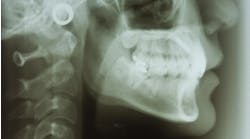Running a business is hard, even if you graduated from business school. But chances are pretty good you didn’t attend business school because you went to dental school, and now you have a practice to run and you’re not prepared for the business aspects. You might be making financial mistakes every single day, and not even know it. A major problem could be just over the horizon, and by the time you see it, you’ll be powerless to stop it.
Across the country dentists are struggling. The percentage of dentists who describe themselves as “not busy enough” in 2012 was 37% for general practice dentists and 36% for specialists, all because of a growing supply of working dentists and shrinking demand. If you find yourself with more time than patients, you might be in trouble. With dental care among adults dropping and the constant changes in dental insurance, it’s harder than ever – and more important than ever – to get control of your finances, and to build a sound financial strategy that will take you to the top.
Financial decisions paralyze you –For some dentists, every financial decision causes panic, even the relatively routine ones. If your cash flow is unhealthy, you won’t have the money to confidently spend on the things you need to grow your practice. Some of this can stem from poor management of overhead. As a percentage of your revenue, you should be running your practice at about 55% to 60% overhead, yet many dentists operate in the 90% to 95% range. That’s disastrous. Anything higher than 60% is unacceptable.
Debt is a four-letter word – If you’re afraid to go into debt, this fear can exacerbate the problem. This can be a simple caution or an aversion to the massive debts that dental school brings. But when you try to pay cash for everything, it means you don’t have cash for any surprises that come up, and this puts you in a position where your problems feed one another and send your finances into a tailspin.
You can’t afford to retire –Your poor cash flow also leads to poor long-term savings, which can delay and greatly reduce the quality of your retirement. Most dentists aren’t saving anywhere near enough money, putting away about $20,000 yearly, whereas a top dentist should be putting away closer to $100,000. If your money is sunk into overhead costs and tax bills, you won’t be able to get even close to $100,000. To maintain your current lifestyle after retirement, you need to manage your money intelligently today.
Do your bank accounts fluctuate wildly on a month-to-month basis? Have you either owed or been refunded $10,000 or more recently? Are you spending more time managing your practice than being a dentist? If so, you need help, before it’s too late. Seek financial guidance now, and get your practice back on track. Your practice is sick, so let’s get it healthy.
For more tips, download FourQuadrant’s free success kit at info.fourquadrantsadvisory.com/success-kit.








